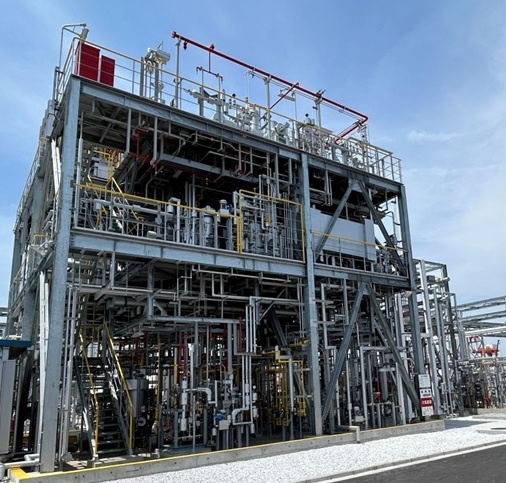Sumitomo Chemical has constructed and begun operation of a pilot facility at the Sodegaura site of its Chiba Works for its new proprietary process to produce propylene directly from ethanol. This innovative technology, backed by the NEDO* Green Innovation Fund, is poised to play a key role in helping the petrochemical industry transition to more sustainable feedstocks. The company plans to accelerate demonstration activities, with the goal of commercializing the process and licensing the technology by the early 2030s.
Propylene is an essential building block in the chemical industry and is primarily produced in Japan from naphtha, a fossil-based material. In contrast, ethanol can be derived from renewable biomass sources such as sugarcane, corn, and non-edible materials like pulp. Recent technological advances have also opened the door to large-scale ethanol production from combustible waste, bringing its industrial viability within reach. As the shift to sustainable raw materials gains momentum, ethanol is increasingly being seen as a viable alternative to fossil-derived feedstocks.
Sumitomo Chemical’s new process enables direct, single-step production of propylene from ethanol, bypassing intermediate compounds such as ethylene, which are required in conventional methods. This streamlined approach is expected to lower production costs. In addition, the process generates hydrogen as a by-product—an added advantage, particularly when using bioethanol, as it allows for the concurrent production of renewable hydrogen.
Looking ahead, Sumitomo Chemical will continue gathering the data required for the industrial-scale implementation of this technology. Simultaneously, it will pursue marketing initiatives for polypropylene made from propylene produced through this process. The company remains focused on achieving commercialization and offering licenses for the technology by the early 2030s.
Sumitomo Chemical is undergoing a major strategic shift in its petrochemical business, aiming to create value through environmentally conscious technologies. It is driving structural reforms both domestically and internationally, while also expanding its technology licensing and catalyst sales, including for this new process. Beyond 2030, the company plans to establish a green transformation (GX) solutions business, creating a circular value chain involving raw material suppliers and brand owners. This model also aims to capitalize on the CO2 emissions reductions achieved by customers.
Through these efforts, the Sumitomo Chemical Group remains committed to supporting the development of a sustainable society by advancing innovative technologies.

















